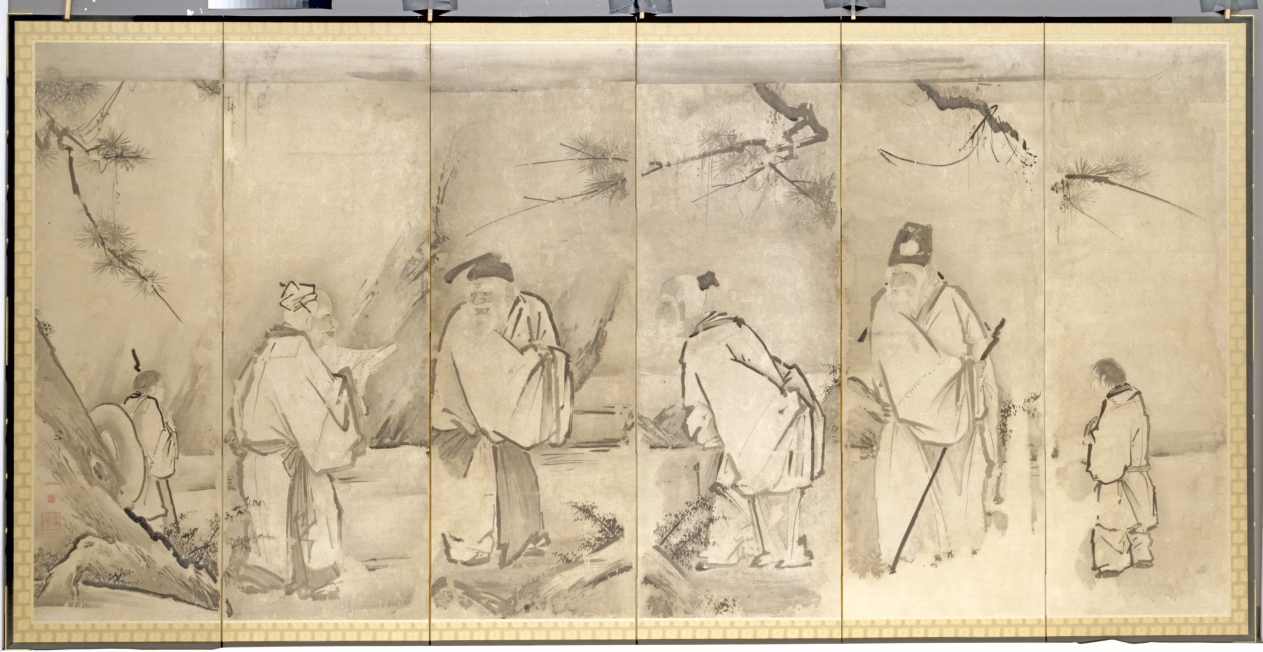| schema:description 9 | "tombstone: Four Elders of Mt. Shang, 1600s. Kano Tan’yū (Japanese, 1602-1674). Pair of six-fold screens; ink on paper; overall: 161 x 339 cm (63 3/8 x 133 7/16 in.). The Cleveland Museum of Art, Gift of Osborne and Gratia Hauge and Victor and Takako Hauge 1979.78.2...(more)" |
| schema:description | "culture: Japan, Edo period (1615-1868)" |
| schema:description | "type: Painting" |
| schema:description | "id: 149766" |
| schema:description | "collection: ASIAN - Folding screen" |
| schema:description | "creditline: Gift of Osborne and Gratia Hauge and Victor and Takako Hauge" |
| schema:description | "measurements: Overall: 161 x 339 cm (63 3/8 x 133 7/16 in.)" |
| schema:description | "technique: pair of six-fold screens; ink on paper" |
| schema:description | "wall_description: The Kano school was a group of professional artists patronized by the shogun from the late Muromachi period to the Edo period. The group adopted themes of reclusiveness to convey the importance of loyalty to the shogunate. A leader of the Edo Kano school, Kano Tanyu paired <em>Seven Sages of the Bamboo Grove</em> and <em>Four Elders of Mt. Shang</em> to reference a painting of the same theme attributed to Kano Motonobu. <em>Seven Sages of the Bamboo Grove</em> refers to the elites who escaped the social chaos of China’s Wei-Jin period (AD 200s–400s); they fled to a secluded bamboo grove where they could express themselves freely, enjoying pure conversation, music, and wine. The other screen,<em> Four Elders of Mt. Shang</em>, depicts the scholars who left the turbulence of the late Qin dynasty to pursue their scholarly interests in seclusion on Mt. Shang in Shanxi province....(more)" |

